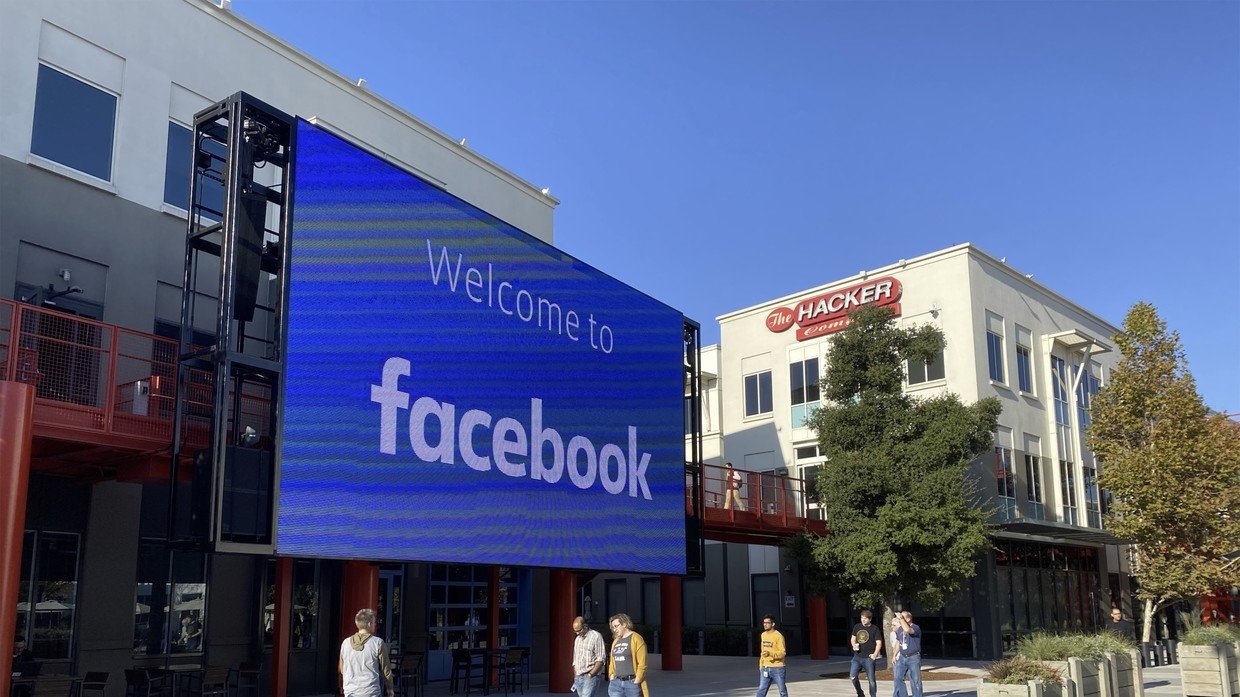Facebook doubled down on its refusal to fact-check political ads or limit advertisers' voter-targeting ability, eliciting wails of anguish from politicos who talk of “media literacy” yet desperately want people's thoughts policed.
The social media behemoth has announced that it will continue to allow political ads to target users based on specific attributes (“microtargeting”) and exempt these ads from fact-checking, two controversial practices that have been the subject of much pearl-clutching as the 2020 US presidential election approaches.
Also on rt.com Facebook bends the knee to outrage grifters in push to ‘protect our democracy’ – but who will protect it from them?While Facebook had briefly thought of limiting microtargeting, it explained in a blog post on Thursday that talking with political campaigns, NGOs, and other groups that use the technique had convinced the company that it was necessary. Instead, Facebook has opted for “expanded transparency,” allowing users to learn about what ads are targeting them and why. A feature allowing the user to see fewer political ads will be introduced in the summer, Facebook promised.
Critics exploded. The Federal Election Commission’s Ellen Weintraub accused Facebook of “hurting democracy” and placing its profit margins above “protect[ing] the democracies that have nurtured its existence.”
“These so-called ’transparency’ solutions are neither transparent nor solutions,” she sniffed, hinting that the platform’s intransigence might convince Congress to take away the Section 230 exemptions that allow it to avoid liability for content users post. Microtargeting, Weintraub warned in the Washington Post recently, “may be undermining the united character of our United States.”
Others suggested Facebook was literally putting users’ lives at risk by allowing politicians to pay for the ability to lie to their constituents.
Actor Sacha Baron Cohen, who made waves when he declared last month that Adolf Hitler would have used Facebook to spread negative information about Jews, called the move “outrageous” and slammed CEO Mark Zuckerberg for helping “the demagogues of the world.”
The company - already blamed by some for the outcome of the 2016 election - was “actively destroying election integrity intentionally,” all for the sake of its bottom line, its detractors said.
But not even Facebook believes voters should rely on the platform in place of their own critical thinking, certainly not for something as important as choosing their leaders - at least, so says Facebook executive Andrew Bosworth. “If we limit what information people have access to and what they can say then we have no democracy at all,” he mused in a memo to Zuckerberg last month, taking a surprisingly moral stance on informational coercion.
If we change the outcomes [of elections] without winning the minds of the people who will be ruled then we have a democracy in name only.
Zuckerberg himself has said he does not want his platform to be viewed as an “arbiter of truth” with regard to political statements. Given that Facebook partnered with NATO-backed pro-war think tank Atlantic Council in 2018 and since then has been deplatforming dissident voices at a rapid clip, many on mere suspicion of being linked to foreign "manipulators," the platform's users would be wise to take his words to heart.
Facebook’s laissez-faire approach to truth in advertising diverges wildly from the platform’s usual infantilization of its users, whom it tends to treat more like human-shaped data-teats to be milked mercilessly than like intellectually curious critical thinkers. Yet this flicker of humanity in the soul of a corporation notorious for censoring “wrongthink” and promoting establishment-friendly content, not the platform’s trading in private user data with third parties without consent, or the frequent “breaches” that spill users’ information into the dark corners of the internet — is what the movers and shakers of American politics object to.
For all that American politicians pay lip service to “media literacy” — House Democrats introduced a bill to promote critical thinking skills just a few months ago, ostensibly to give citizens the tools to recognize disinformation — the explosive reaction to Facebook’s ad policy has shown it is more concerned with controlling the narrative than with encouraging voters to think for themselves.
When Mark Zuckerberg is a society’s champion of free speech, that society is in deep trouble.
Like this story? Share it with a friend!

